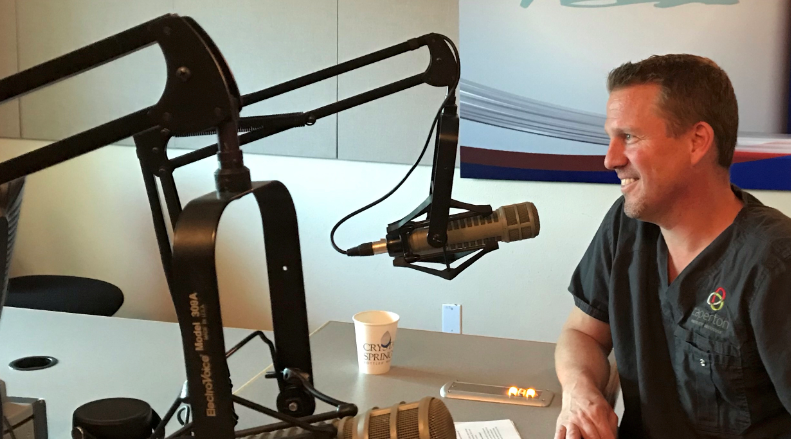For women and their partners who struggling to become pregnant, we recognize National Infertility Awareness Week (April 22-28, 2019) as an opportunity to express our compassion and help provide hope. Dr. Lee Caperton recently appeared on a radio program to discuss the advancements in reproductive science to assist people trying to conceive. You can hear the interview here.
Many advancements in treating infertility are available today; in the 40 years since the first “test tube” baby was conceived, in vitro fertilization has become quite commonplace. In our culture, many women wait until their 30s to begin trying to have a child. While there is a clear correlation between age and infertility, treatments are available that often help women with age-related fertility issues.
Sometimes infertility is caused by a hormonal imbalance; sometimes male factor infertility due to a low sperm count or low motility is the source. Experienced fertility specialists like Drs. Lee and Kelly Caperton can help you determine the cause, and recommend solutions, sometimes surgical but often not, to help.
For every woman who dreams of being pregnant and having a child, the team of fertility specialists at Caperton Fertility Institute works to resolve the issue each family experiences and to assist in the conception of new life.
For women who’ve experienced a miscarriage, we also recognize the pain that the upcoming Mother’s Day represents. Most women who have lost a pregnancy before term can be assured that they still have a normal chance at carrying a fetus to term and delivering a healthy baby. It’s estimated that 20% of pregnancies end in miscarriage; over the age of 45, as many as 90% of pregnancies may result in miscarriage. Factors that can lead to miscarriage include genetic problems, abnormal hormone levels, infections, or structural problems in the uterus or cervix, even some environmental factors. Our fertility specialists can help determine if any of those are a factor for a patient.
At Caperton Fertility Institute, we focus on a holistic and comprehensive evaluation and education to help patients know what risk factors they can and cannot control, and sometimes use genetic testing of the embryos to help reduce the risk of loss. The emotional toll on patients with recurrent miscarriages can be very severe, and sometimes just knowledge and support can be healing to these patients.
Those who’ve experienced a miscarriage or struggled with fertility may also find support through ShareYourStory.org, an online community through the March of Dimes, a non-profit organization that works to improve the health of moms and babies.
As National Infertility Awareness Week is recognized, please know that our hearts are with those who face infertility; our dream is to help make your dream of parenthood come to life.

